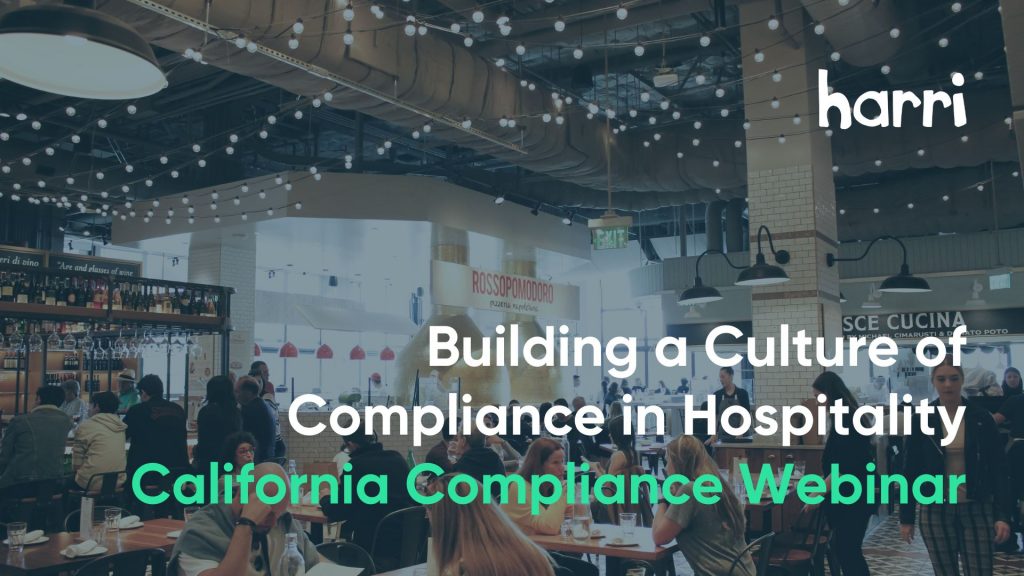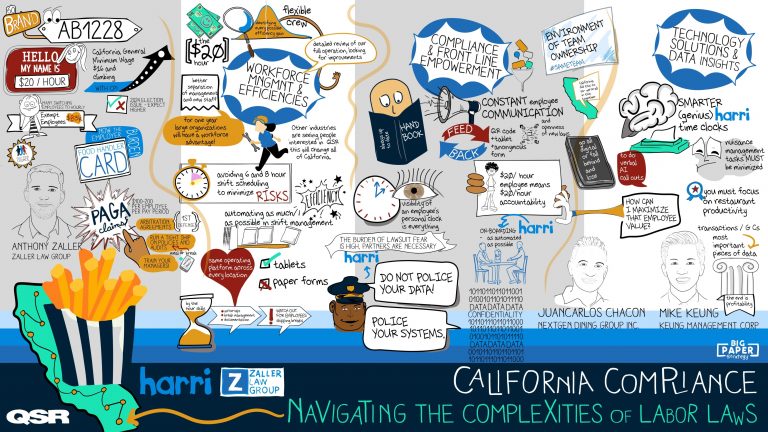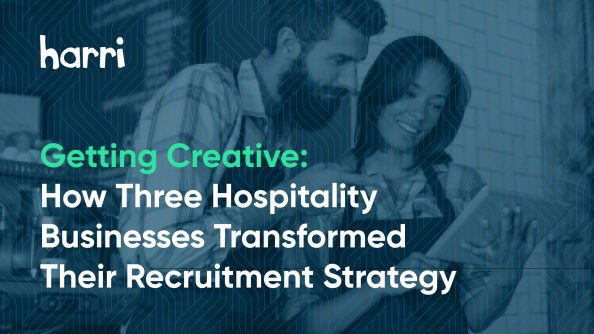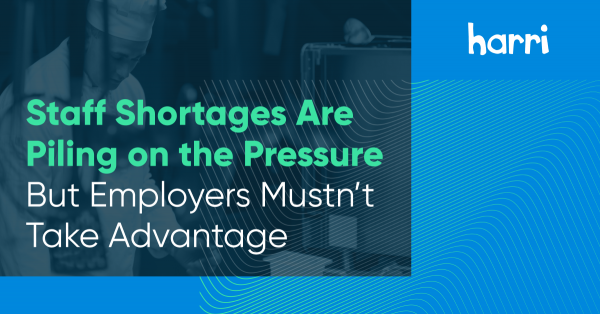Building a Culture of Compliance in Hospitality

- By Harri Insider Team | February 22, 2024
Ensuring hospitality compliance across various locations, especially when navigating legal standards in multiple regions, states, or countries, presents a unique set of challenges for operators. During a recent webinar, Anthony Zaller led a conversation about tackling the latest round of legislative updates in California with Juancarlos Chacon, President of NextGen Dining Group, a Jersey Mike’s Subs Franchisee and Mike Keung, Owner and Operator of Laddaran Keung Management Corp dba McDonalds. They dove into the realities of aligning operations with new laws and shared actionable advice for building a culture that prioritizes compliance.
Here are five ways to build a culture of compliance in hospitality:
Leadership commitment and leading by example
Juancarlos emphasizes hands-on leadership as a cornerstone of compliance strategies in hospitality, highlighting its importance in achieving adherence to hospitality industry regulations. His practice of being actively present in his stores multiple times a week encourages a sense of personal investment among employees. “You can create an environment of extreme ownership. And creating that environment of Extreme Ownership means that they feel it’s their business as well. But it has to be from day one. They’re going to feel that it’s their business too, and they’re not going to say ‘Let the owner deal with it’ because I’m there with them. I’m in my stores three or four times a week.”
“From day one we make a culture by having discussions about these laws on a regular basis. We stay transparent with our teams. And we hold them accountable to the laws as well, but we hold ourselves accountable to make sure that we, as supervisors, are held to the same standards.”
Juancarlos Chacon

Comprehensive training and effective communication
Mike highlights the practical steps his team takes for comprehensive training and effective communication, ensuring everyone is up-to-date with the latest hospitality compliance regulations. Immediate notification of employees and clear communication through in-restaurant boards exemplify his approach to ensuring that everyone understands their role in compliance.
“Right when some new regulation comes in all our employees are notified immediately. And we also communicate with the restaurant team,” he shared. “We’ve got boards in the restaurants that just have general announcements, and certainly when it comes up, we always make sure and inform all our employees of any policies implemented and then how we’re abiding by those policies staying compliant.”
Encourage open dialogue and collect employee feedback
Encouraging open dialogue and collecting employee feedback swiftly identifies gaps in hospitality compliance. It also gives staff a stake in compliance, creating a unified effort to uphold standards.
“Have something available in the restaurant for someone to express a concern about something that’s potentially non-compliant. That way you can get that feedback because, be realistic, you’re not in your restaurant every single day,” shared Mike. “I’ll get an automatic email that says somebody submitted something to the anonymous feedback line and I’ll read it as they come through. That way you get quick action and you potentially prevent some type of lawsuit in the future.”

Continuous Improvement and Policy Updating
Both operators stressed the importance of continuous improvement and policy updating as part of their compliance management strategy in hospitality, ensuring all practices meet current legal standards. “I think one of the key items for us to remain compliant is to be constantly evaluating employee handbooks,” shared Mike, who worked with his attorney to have their employee handbook audited at least twice in anticipation of all of the policy changes coming up this year. “That’s been critical for us because we take those changes and we implement those changes as soon as possible. And then any key policies that are generated, we throw into our orientation.”
Juancarlos emphasized the benefit of using an all-in-one system like Harri, since Harri keeps all compliance regulations up to date. And he takes it a step further by having his attorney conduct regular audits on certain elements such as onboarding documents. He stressed the value of having everything in one place, including his onboarding documents, arbitration agreements, and team handbooks, all with a digital signature.
Leveraging Technology for Compliance Management
Technology transforms compliance for hospitality operators into a seamless aspect of business operations, automating crucial tasks and keeping every site aligned with the latest regulations. This innovation allows leaders to concentrate on enhancing guest experiences without compromising on legal integrity.
“Harri keeps me up to date with all my W2s and i9s so I don’t have to worry about something changing. Harri automatically updates my i9s in my hiring platform. And that gets auto-filled and it has checks and balances. They automatically separate the I9 from the employee file like it needs to be,” Juancarlos shared. “Everything that gets documented gets uploaded to their personnel file. It’s all digital, so I can access it whenever I want. Whenever I get an unemployment case, I just search for the employee. I print out everything that’s relevant. Any write-ups or anything like that, it’s all there. And I have it in one place.”
The insights from Juancarlos and Mike on building a culture of compliance in hospitality underscore the critical role of technology, leadership, and employee training compliance in embedding legal integrity into the core of hospitality operations. By embedding a culture of compliance through direct leadership, clear communication, technology, and ongoing policy reviews, hospitality operators can ensure their businesses are safeguarded against legal pitfalls while strengthening the foundation for a thriving, guest-focused operation.





















